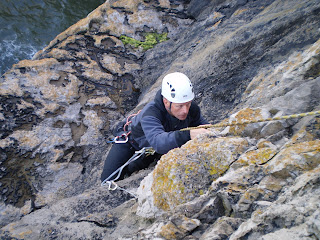Comfort Zone: Model or metaphor?
His well researched argument is that stretching Comfort Zones may not maximise learning. Indeed the trauma involved could even produce a negative outcome and he argues that peak learning requires trust and support to prevail; perhaps I need to create those conditions first. He also argues that transfer is not a given. I agree that many people cannot link abseiling with a job interview, and Carlson (1996) provides some additional reading on this issue.
Brown’s key message though is that Comfort Zones are not “one size fits all” and this is supported by other such as Connolly (2003). Every individual is different and this concept is expanded further by Fenton who proposes a wider activity range: The time has come for the adventure industry to promote positive learning paradigms through, for example, flow, in a broad range of activities, from meditative to physically rigorous, in order to increase self-awareness and self esteem. (2008, p. 90)
I already do but can I do more? How do I ensure individual experiences for my entire group? How do I measure peak learning? Answering these questions present a challenge but I still believe the Comfort Zone framework is valid. Perhaps the way ahead is Comfort Zone - doctrine not dogma.Brown, M. (2008) ‘Comfort Zone: Model or metaphor?’, Australian Journal of Outdoor Education, vol. 12, no. 1, pp. 3-12.
Brown, M. (2008) ‘The Comfort Zone: Reflection on a taken-for-granted model’, Ki Waho, Spring/Water edition, pp. 28-30.Carlson, T. (1996) 'Adventure into education: Innovation in teaching in tertiary settings', Google Scholar, EBSCOhost, [accessed 20/9/2011].
Connolly, R. (2003) Pegasus NLP Newsletter [online], available from: http://www.nlp-now.co.uk [accessed 20/9/2011].Fenton, L. (2008), 'Adventure Education and Csikszentmihalyi's Flow Theory: A Critical Analysis of Stress and Optimal Experience as Learning Tools', Abstracts from the Coalition for Education in the Outdoors Ninth Biennial Research Symposium, Indiana University, 11-13 Jan, USA: State University of New York at Cortland, pp 89-90.
Plummer, R. (2009) Outdoor Recreation: An Introduction, New York: Routledge.
